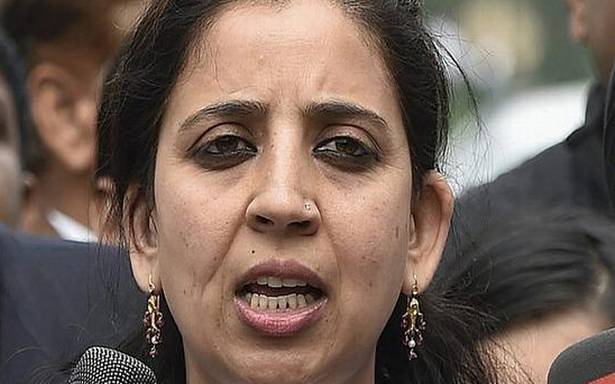‘Only a handful of transactions conducted in a single circle with about 42 electronic points of sale machines cannot be considered as implementation of ONORC,’ it says.
The Centre has maintained in the Supreme Court that Delhi government’s claim to have launched ‘One Nation One Ration Card’ (ONORC) scheme in the Capital is “misleading”.
“The claim of Government of National Capital Territory of Delhi regarding launch of One Nation One Ration Card (ONORC) plan in NCT of Delhi is misleading, as they claim to have implemented it only in circle 63 Seemapuri. Only a handful of transactions conducted in a single circle with about 42 electronic points of sale (ePOS) machines cannot be considered as implementation of ONORC,” the Centre submitted before the Supreme Court.
The Centre, represented by Additional Solicitor General Aishwarya Bhati, said the implementation of the ONORC would require national portability transactions to be rolled out formally in all the fair price shops of all the circles of Delhi in which more than 2,000 ePoS machines had been supplied and were waiting for operation.
“It is pertinent to appreciate that a very large number of inter-State migrants are present across Delhi, such as migrant workers, street dwellers, rag-pickers, migratory labourers, construction workers, rickshaw pullers, auto/taxi drivers, and others, who do not have access to their National Food Security Act food grains,” the Centre said.
It said that none of these economically marginalised population in the Capital, who were away from their native villages and towns, were able to access their quota of subsidised food commodities assured to them under the Food Security Act.
“There is no full implementation of the ONORC and reporting of such transactions/distribution details of NFSA/PMGKAY food grains on the central portals/dashboards,” the Centre said about Delhi.
The Centre said the onus of implementing the ONORC was on the States. It said that while most States were implementing the ONORC, four of them — Assam, Chhattisgarh, Delhi and West Bengal — have not yet integrated into the scheme. Their integration would depend on their “technical readiness” to implement the portability of ration cards.
The Centre’s submissions came despite Delhi’s stand that it was implementing the ONORC scheme.
Recently, Food Secretary Sudhanshu Pandey had written to the Delhi government to resume the use of ePoS machines at ration shops. Mr. Pandey had said at least 10 lakh migrant workers in Delhi, who had ration cards in their home States, would be able to access subsidised food grains in the Capital.
Ration card portability under the ONORC scheme is dependent on ePoS machines, as they use Aadhaar-linked biometric authentication to verify the identity and entitlement of beneficiaries even if they are not registered at that particular shop. Delhi had suspended the use of ePoS in early 2018, after widespread complaints of poor network leading to authentication failures and exclusion of genuine beneficiaries.


